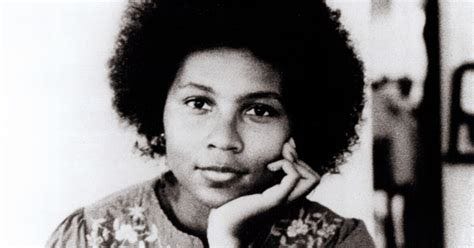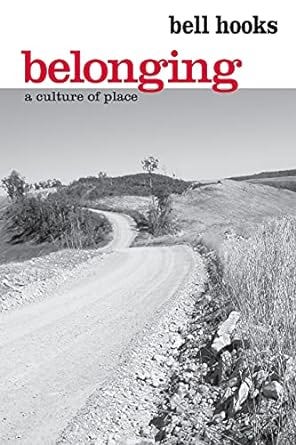In the spirit of New Year’s resolutions, this week’s visit to The Library shows what is possible in conversation across apparent differences. This year, 2024, is an election year in the United States, and differences will be magnified. I wanted to start by thinking about belonging, rather than isolating, by highlighting a conversation between social critic bell hooks and agrarian writer Wendell Berry. Read on!
By the way, I extended the discount for paid subscriptions until Friday, January 5. Upgrade your subscription now to support my work!
Kentuckians
Few social critics have been as influential as bell hooks (1952-2021). A fierce feminist and critic of capitalism, hooks left behind a legacy of work that interrogated oppression and promised ways forward. A black woman who identified as queer, hooks railed against the white-supremacist-capitalist-patriarchy often. Along the way, she dabbled seriously in Buddhism.
Wendell Berry, as you may remember from an earlier newsletter, is a farmer and writer. Berry is, by many measures, a cultural conservative and, by any measure, a committed Christian. He has faced criticism for being patriarchal, and his racial ideas have also received objections.
An odd pairing, to be sure, but both hooks and Berry are Kentuckians who value deep relationships with the land—and that generated productive grist.
Belonging to History
One of the books I finished last year was hooks’ 2009 collection, Belonging: A Culture of Place. The essays contained in it often grabbed my attention and flicked lesser-used corners of my mind.
In her preface, hooks wrote about what she did in the book:
I pay tribute to the past as a resource that can serve as a foundation for us to revision and renew our commitment to the present, to making a world where all people can live fully and well; where everyone can belong.
When I wear my historian’s hat and my citizen’s coat simultaneously, this is the sort of foundational faith I operate with. Although in 2024 with the explosion of new and powerful technologies, we can be tempted to breeze past history and assign it to irrelevance. But I spent too many years excavating the past to see it as anything other than the basic starting point for understanding, healing, improving our world.
So, too, did hooks.
hooks on Berry
Given Berry’s reputation as a somewhat staid nostalgic, I was surprised to find an essay toward the end of Belonging where hooks lauds Berry’s writing. According to her own account, hooks taught one of Berry’s earliest books, The Hidden Wound (1968), as often as she could. The book was Berry’s first reckoning with race—not remotely what he is best known for.
She concludes that essay showing where she and Berry align:
Like Wendell Berry, I believe that we can restore our hope in a world that transcends race by building communities where self-esteem comes not from feeling superior to any group but form one’s relationship to the land, to the people, to the place, wherever that may be. When we create beloved community, environments that are anti-racist and inclusive, it need not matter whether those spaces are diverse. What matters is that should difference enter the world of beloved community, it can find a place of welcome, a place to belong.
Place-making and community-making can be at the foundation of what makes us all belong. That hooks and Berry shared such ideas reminds us that common ground is sometimes found in unexpected places.
Their Conversation
The subsequent chapter is “Healing Talk: A Conversation,” and hooks and Berry talk about the possibilities of making that beloved community, the one hooks mentioned and the one Martin Luther King Jr. famously preached.
Berry described being at Stanford in the late 1960s and witnessing racial turmoil. In trying to respond, he found most conversations were rooted in guilt and anger. What he thought was missing was love.
As they continued their conversation, hooks guided Berry to consider dependency in ways of both mutual affirmation and domination. In this context, Berry mused on the theme of intimacy. He noted the intimacy between workers of the land, something he saw that was missing in modern times. This distancing helped dehumanize workers and made work itself an enemy, something beneath us.
Too many white people, Berry said, “think we are too good for physical work and physical reality.” By imagining some way beyond work, beyond physical labor and reality, they devalued those tight connections with land and those who forged them with their labor. Berry praised the deep knowledge of rural black farmers and how they applied that knowledge thoroughly.
“Think of the beauty of their intimacy with the material life that they lived,” he said to hooks.
hooks frequently brought up how much silence circles race, which is why she admired Berry’s treatment in The Hidden Wound. The intimacy of relationships—between people and the land and among rural people across racial divides—may have declined or disappeared because shame or guilt. Berry said that slavery shamed many white southerners who refused to own it as a mistake. “If we ever fully recognize our past, we will understand how deeply we need each other,” he concluded.
In that, Berry touched on a value shared with hooks: community needs each other (and needs to recognize its dependency on the land). In the final lines, she pointed out:
Much of what our nation has lost is that awareness that the earth can be for us a place of spiritual renewal, not just a place to stroll in a park, or hike in a forest, or find land to mine resources, but that it is a place where we can be transformed.
A solution is to work together, knowledgeably and aware, in place—work that will transform places and ourselves.
Power of Conversation
The summary above is, of course, inadequate to the nuances of the hooks-Berry conversation. But I hope it suggests the power of conversation to weave disparate strands.
As I look ahead across the months of 2024, I hope more people like bell hooks and Wendell Berry, superficially so different, sit down and talk to discover shared commitments and realize “how deeply we need each other.”
Closing Words
Related Writing
My faith in it is tested daily, but I keep democratic hopes that conversation can lead to better outcomes. Sitting around a table is a metaphor I’ve used frequently first here and then throughout my last book, drawn from Hannah Arendt’s treatment in The Human Condition (1958).
New Writing
Next month, a book will be published, Wallace Stegner’s Unsettled Country: Ruin, Realism, and Possibility in the American West, in which I have a coauthored chapter. I mention it here, ahead of its availability, because my coauthor (Leisl Carr Childers) and I structured it as a conversation much like how hooks and Berry batted ideas back and forth.
As always, you can find my books, and books where some of my work is included, at my Bookshop affiliate page (where, if you order, I get a small benefit).
Special Offer
Last chance! I extended my 20% discount for paid subscriptions until Friday, January 5. I hope you’ll consider supporting my work and enjoying access to extra features, including a monthly interview with another writer or artist.
Taking Bearings Next Week
I return to The Wild Card next week. At the moment, my plans are murky (even nonexistent!). Stay tuned!






I feel like a real novice reading your work! I am learning as I go and I appreciate the opportunity! Thanks!
Hi Adam -
Thanks for your post. I had no idea these two brilliant, thoughtful writers had ever met, much less recorded a conversation in print. Several books and references that I’ll definitely explore!
But more than this, thanks for addressing the need for conversations across any and all divides. It’s our only way out of the multiple messes confronting humans and our ecosystem.
As a reader who also does some editing, your phrase describing bell hooks as “dabbling seriously” in Buddhism felt jarring and, to be honest, dismissive, which I don’t at all associate with your writing. It did however lead me to investigate more about her, so thanks!, and now I’d disagree that she was dabbling. I’d say she was quite serious, however it is that she integrated Buddhism into her life.
Thanks again for your thoughtful writing. May the new year treat you well!